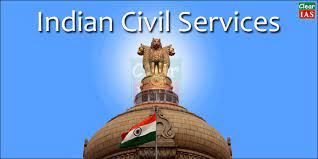KM Chandrasekhar, TKA Nair
The Indian Administrative Service has been making big headlines with the chief minister of West Bengal and other states taking serious objections to the Central Government’s proposed amendments to the rules governing the deputation of IAS officers. For the sake of effective governance and in the spirit of cooperative federalism, any drastic changes in the rules should await a process of consultation with the states.
Recruited, appointed and trained by the Central Government and allotted to various state cadres, IAS officers are mandated to serve not only the state cadre to which they belong but also the Central Government whenever they are called upon to do so.
Senior positions in the Central Government from the level of deputy secretary/ director to secretary are expected to be manned by IAS officers on central deputation from different state cadres and officers from other services as well as others appointed for their domain knowledge.
Thus officers of the IAS are under the dual control of the State Governments to which they belong and the Central Government which is their appointing authority. The scheme and structure of the IAS envisages this sharing of power in order to enable both the Centre and states to utilise the officers’ services for the effective governance of the country.
While the Central Government is vested with the ultimate authority in matters relating to their service conditions including postings, transfers and disciplinary actions, the State Governments too have a participating role in these matters by way of the relevant rules.
The changes to the IAS cadre rules proposed by the Central Government should therefore be viewed in the context of the structure and functioning of the central and State Governments within our quasi federal polity.
According to media reports the Central Government addressed two letters dated January 5 and 12, proposing changes and additions to the IAS cadre rules. The first proposes that the state governments “shall make available for deputation to the central government” eligible officers at various levels under the deputation reserve, calculated jointly by the central and State Governments, with the former’s view prevailing in case of disagreement. Besides, it mandates state governments to carry out the direction of the Central Government within a specified period of time.
Going further through the subsequent letter of January 12, the Centre arrogates to itself the authority to seek the services of any IAS officer in a state for posting to any central post, where too “the State Government shall give effect to the decision of the Central Government within the specified time. ” More drastically it states that if the State Government ignores this direction within the period specified by the Central Government, “the officer(s) shall stand relieved from the cadre from the date as may be specified by the Central Government. ”
There is a suddenness to these moves and they are statedto have been occasioned by the steep fall in the number of officers going on central deputation, from 69% of the mandated reserves in 2014 to 30% in 2021, according to one estimate.
This is, of course, a serious shortfall, but instead of proposing drastic changes in the rules, GoI should first introspect and examine why central deputation is no longer as popular as it was in the past.
Have the conditions of service in the Centre deteriorated vis-à-vis the states, making central deputation a less attractive option for officers in the states? Have changes in the empanelment system at higher levels closed the door to officers who would have otherwise been available for service at the Centre? Has uncertainty crept into tenures of service for IAS officers on central deputation?
GoI should also be conscious of the fact that grassroots-level administration remains with the states. Even Central schemes are largely implemented through state governments. Arbitrary and sudden transfers of officers from the states to the Centre can be highly disruptive, undermining governance in the state.
Moreover, non-BJP states are alarmed at what they, with some justification, perceive as serious infringement of their constitutionally sanctified right to govern through their institutions of governance of which the IAS is a critical part.
Against the backdrop of increasing points of difference and areas of confrontation between the Central Government and non-BJP State Governments, controversy over the proposed amendments is avoidable.
It is therefore good that the Central Government has initiated a process of consultation with the states. They would be well-advised to widen and deepen the process to include the officers too and then decide whether the proposed amendments are in the right direction for ensuring timely availability of IAS officers at different levels for deputation to the Centre – without undermining the authority, responsibility and functional efficiency of the states and causing undue distress to the officers and disruption of their family lives.
At the end of the day, the solution lies in cooperative federalism. As Prime Minister Narendra Modi said at a function in Burnpur in 2015, “Our Constitution gave us a federal structure. Sadly, Centre-state relations were tense for a long time. I have been a chief minister, and I know this is not desirable. That is why we have brought change, keeping the focus on cooperative federalism … That is why I say Team India … The country cannot progress without a Team India attitude. ”
(The authors are former Cabinet Secretary, GoI and the Secretary to PM Manmohan Singh)
Trending Now
E-Paper


